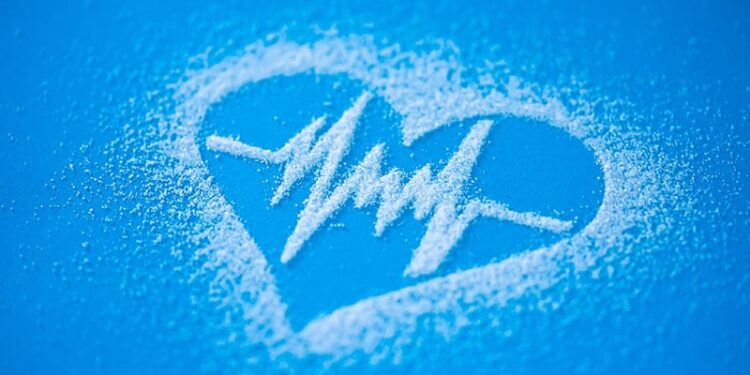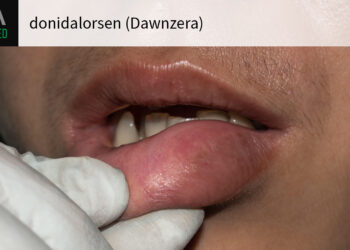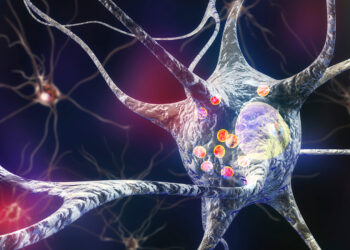TOPLINE:
In adults with type 2 diabetes (T2D) on multiple antihypertensive medications, a modified Dietary Approaches to Stop Hypertension for Diabetes (DASH4D) diet combined with reduced sodium intake led to a clinically relevant reduction in systolic blood pressure (BP), with the benefits primarily attributed to sodium reduction.
METHODOLOGY:
- Although the original DASH diet — rich in fruits, vegetables, and low-fat dairy products and low in saturated fat and cholesterol — is recommended with sodium reduction for managing hypertension in patients with T2D, evidence of its effectiveness in this population remains limited.
- Researchers conducted a single-site study in Maryland to assess the efficacy of the DASH4D diet, featuring lower carbohydrates, higher unsaturated fats, and lower potassium than the original DASH diet, together with reduced dietary sodium for BP management in T2D.
- They included 102 adults with T2D (mean age, 66 years; 66% women) between June 2021 and December 2023; the patients had a mean baseline BP of 135/75 mm Hg; 66% of them used at least two antihypertensive medicines, and 55% used two or more glucose-lowering medicines.
- Participants were randomly assigned to be provided with four diets in sequence, each for 5 weeks: The DASH4D diet with lower sodium, DASH4D diet with higher sodium, typical US diet with lower sodium, and typical US diet with higher sodium; in a 2000-kcal menu, the lower and higher sodium levels were set at 1500 mg/d and 3700 mg/d, respectively.
- The primary outcome was end-of-period systolic BP, measured on 5 separate days during the last 2 weeks of each feeding period.
TAKEAWAY:
- Compared with patients on the typical US diet with higher sodium, those who received the DASH4D diet with lower sodium showed an average systolic BP reduction of 4.6 mm Hg (95% CI, -7.2 to -2.0) and an average diastolic BP reduction of 2.3 mm Hg (95% CI, -3.7 to -0.9) after 5 weeks.
- Among patients on the DASH4D diet, systolic BP was reduced by 4.8 mm Hg (95% CI, -7.4 to -2.2) in those with lower vs higher dietary sodium.
- Most reductions in BP occurred during the first 3 weeks of each diet period. Patients completely adhered to the recommended diet for 96% of the study days.
- The frequency of adverse events was low.
IN PRACTICE:
“[The findings] provide evidence of the efficacy of BP lowering through dietary change in people with T2D, including those treated with multiple antihypertensive and glucose-lowering medications,” the authors of the study wrote. “High adherence to the DASH4D lower sodium diet suggests that the diet is acceptable.”
SOURCE:
This study was led by Scott J. Pilla, MD, MHS, Johns Hopkins University School of Medicine in Baltimore. It was published online on June 9, 2025, in JAMA Internal Medicine.
LIMITATIONS:
This study was not powered sufficiently to detect individual effects of the DASH4D diet and sodium reduction. As a single-center study, the study population lacked diversity. Participant feeding was disrupted at multiple points owing to the COVID-19 pandemic.
DISCLOSURES:
This study received funding from the Sheikh Khalifa Stroke Institute at Johns Hopkins University School of Medicine, grants from National Institute of Diabetes and Digestive and Kidney Diseases, National Heart, Lung, and Blood Institute grant, and the National Center for Advancing Translational Science Awards Program. Several authors reported receiving grants from sources including the funding agency and National Institutes of Health. Some authors reported serving on the scientific advisory board or receiving personal fees outside the submitted work.
This article was created using several editorial tools, including AI, as part of the process. Human editors reviewed this content before publication.
Source link : https://www.medscape.com/viewarticle/dash4d-diet-bp-control-t2d-less-salt-better-results-2025a1000g0m?src=rss
Author :
Publish date : 2025-06-16 10:28:00
Copyright for syndicated content belongs to the linked Source.














